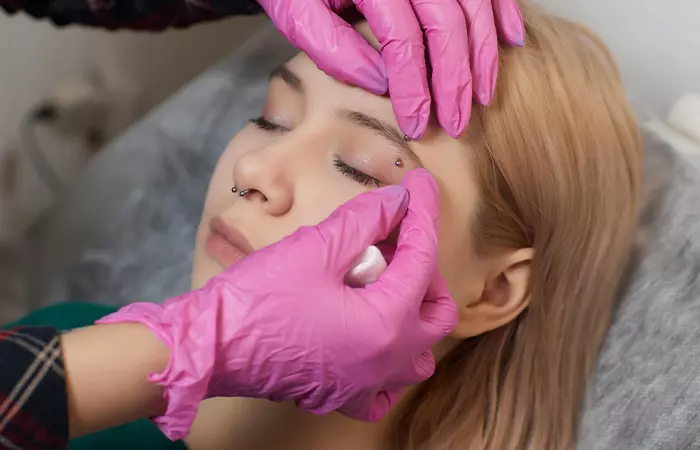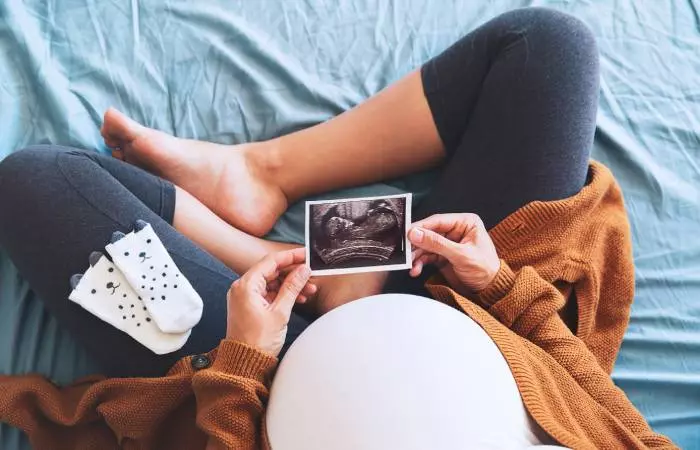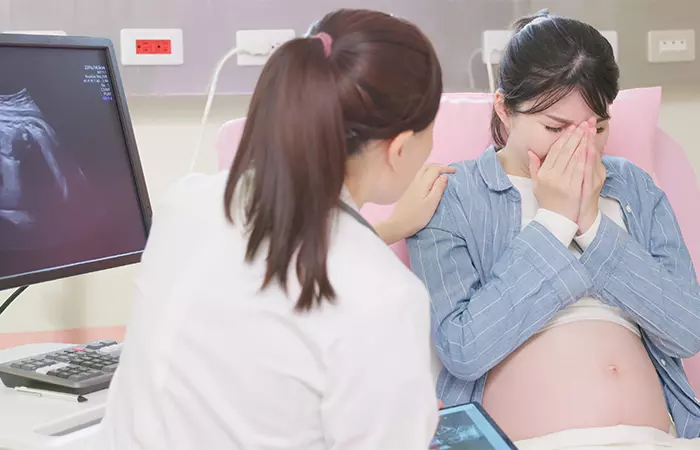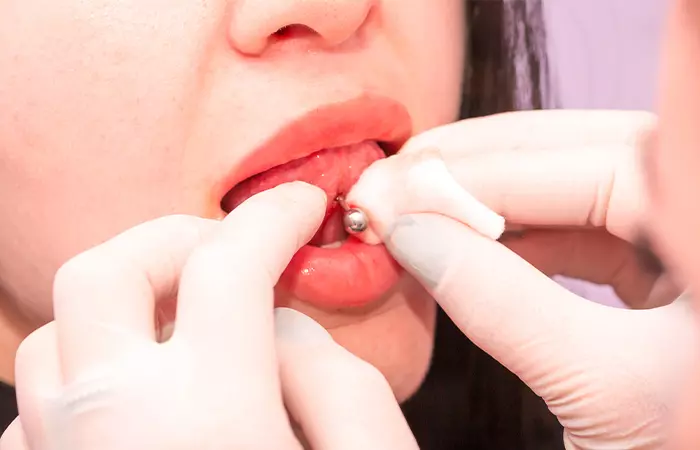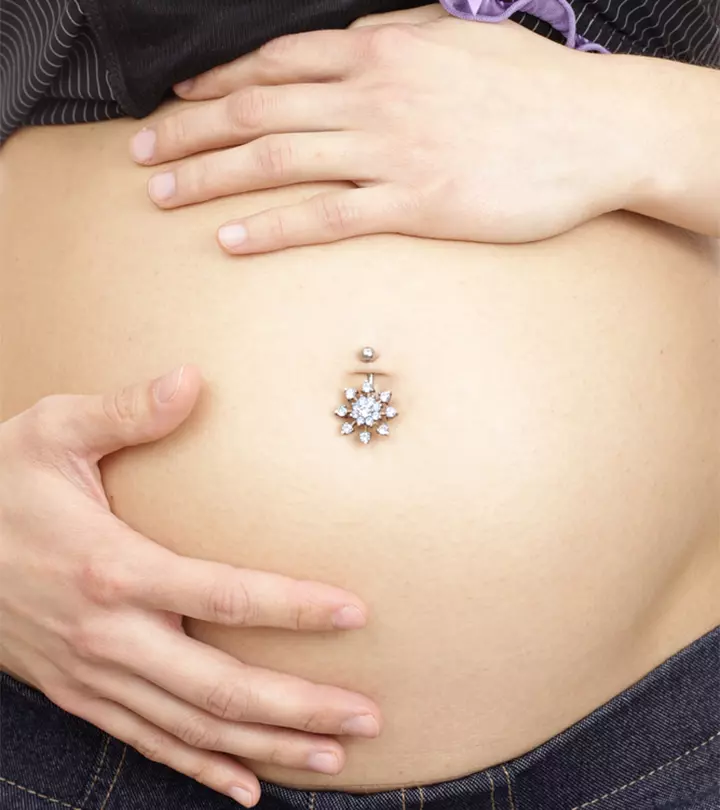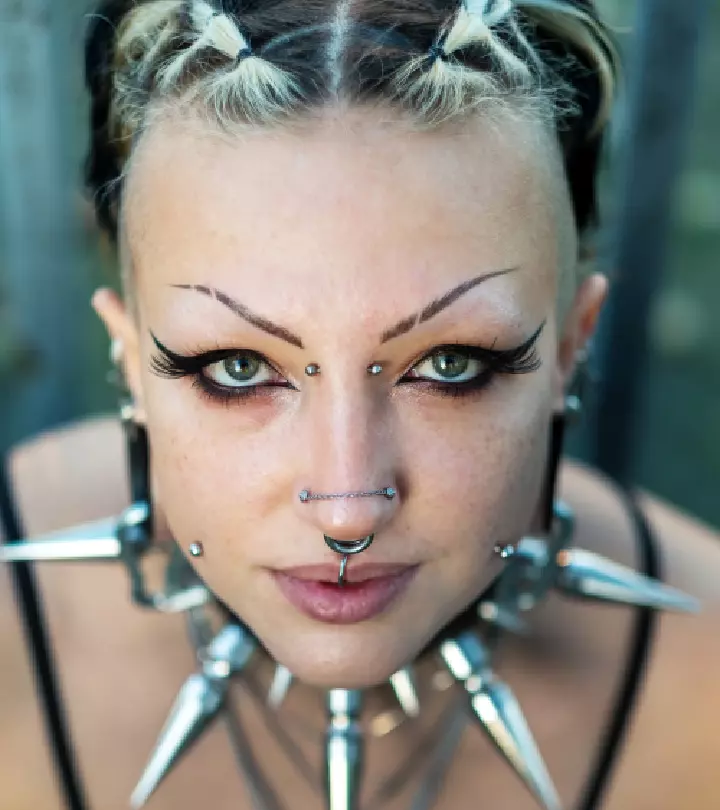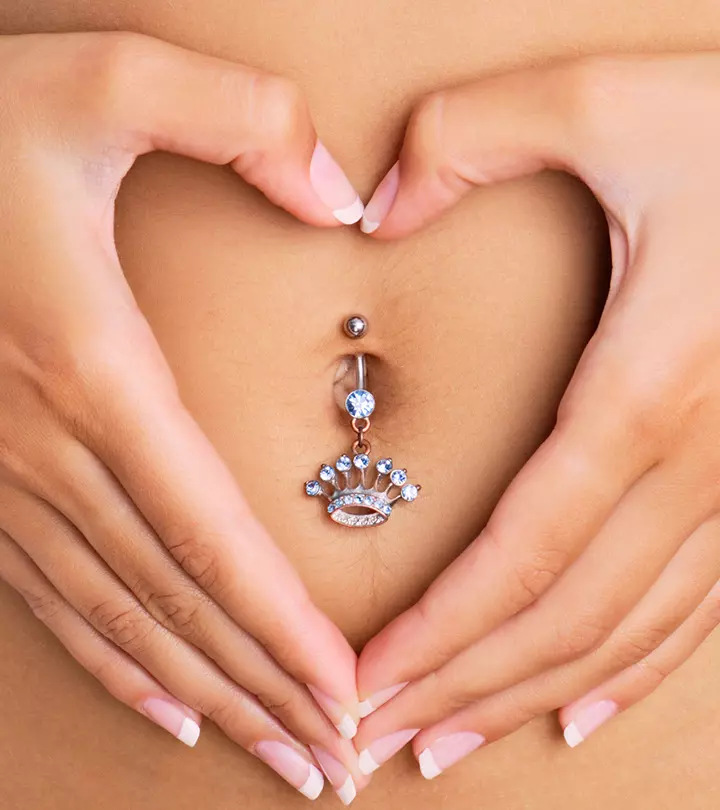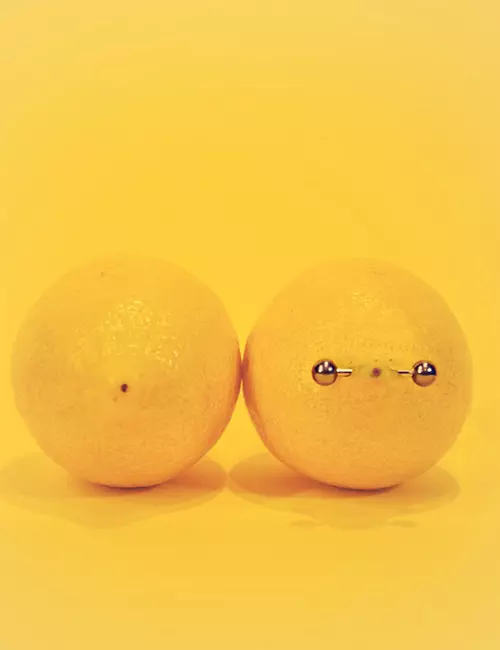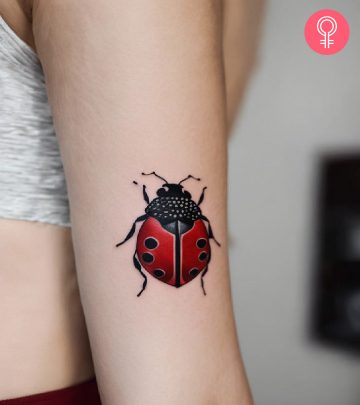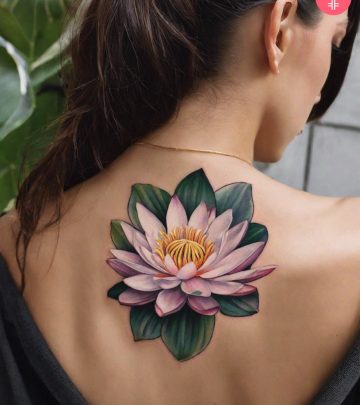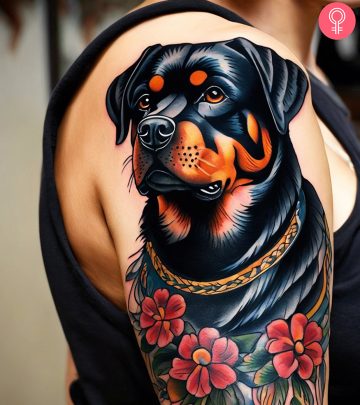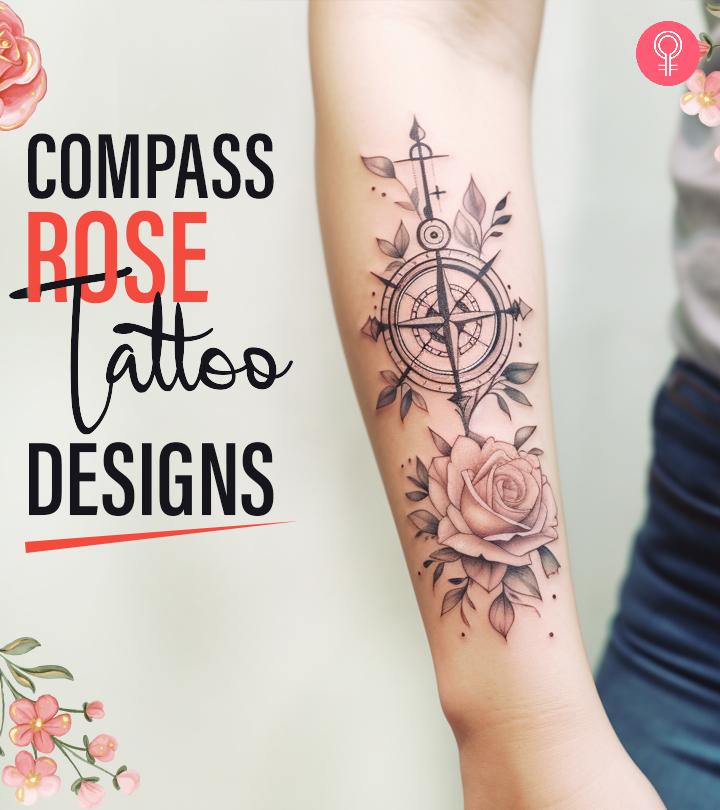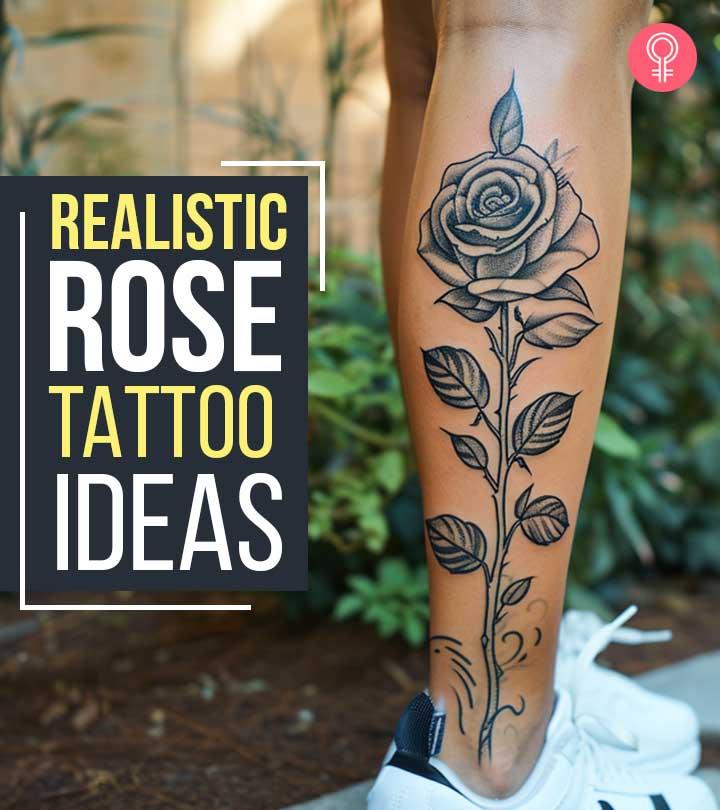Can You Get A Piercing While Pregnant? Know Your Options
Navigate piercing desires with a baby on board with the necessary knowledge to avoid risks.

Image: Shutterstock
If you are with a child but also have a desire for a piercing, and deliberating whether you can get a piercing while pregnant, let us help you out. While the piercing process might seem like a minor alteration, it is natural to have questions about potential health risks to you and your little one. You may want to express yourself and embrace your personal style during this exciting time; however, the world of expecting mothers comes with a whole new set of considerations, and issues about body modifications are one of them. There is no simple yes or no answer to this query. What is important is to weigh the pros and cons and make an informed choice that feels right for you and your bundle of joy on the way. Keep reading to gain more insights into safety considerations, concerns, the healing process, and other important aspects when toying with the idea of getting a piercing during pregnancy.
In This Article
Can You Get A Piercing While Pregnant?
While the idea might be tempting, it is advisable to hold off on any elective procedures, including piercings, during the pregnancy term. The primary concern revolves around the risk of infection and potential complications that could arise as a result. Moreover, most piercing studios have policies against performing procedures on pregnant individuals to mitigate any potential risks.
It is always a good idea to consult with your healthcare provider or a professional piercer before making any decisions. They can advise you on safe placements, the best materials, whether it is safe for you to get a piercing in the first place, and aftercare guidelines for when you do. Ultimately, the decision is yours but remember – informed choices and open communication with your healthcare providers are essential to keeping both you and your little one happy and healthy.
To address the burning question of is a piercing truly safe when you are carrying your child, read on. Learn the potential impacts the act can have on your unborn baby in the next section.
Is It Safe To Get Piercings While Pregnant?
The key concern lies in the increased risk of potential infections. Pregnancy changes your immune system, making you more susceptible to infections, in general, and specifically around the piercing site (1). While rare, these infections can have serious consequences for your baby, potentially impacting their development or causing complications like a preterm birth.
Experts strongly advise against belly piercings during pregnancy, due to the stretching skin and proximity to the baby. Even other intimate piercings carry risks related to bacterial contamination, allergic reactions, and even exposure to medications used to treat complications (2).
Remember, your baby’s well-being always takes precedence. Have an open and honest conversation with your doctor about any piercing plans. Prioritize informed choices and your baby’s as well as your health – your new bling can wait.
Understanding the potential impact of a new piercing on your to-be newborn is just the first piece of the puzzle. However, if you truly desire a piercing during this special time, keep reading for some practical steps you should take for proper care and to minimize risks.
Safety Considerations Of Getting Piercing During Pregnancy
When it comes to getting a piercing during your pregnancy, safety is key for both mom and baby. If you have recently gotten a piercing or have one healing when you discover you are pregnant, here are some important tips:
If you are trying to conceive:
- It is advisable to avoid piercings. If you choose to get one, ensure thorough sterilization of tools and materials and have it done by a professional piercer.
If you are pregnant or breastfeeding:
- Pre-existing piercings, especially in areas like the belly button, breasts, or genitals, may become uncomfortable as your body changes during pregnancy. Consider getting them removed.
- Opt for high-quality materials for the jewelry like surgical steel, titanium, or at least 14-karat gold that are free of nickel and cadmium to avoid allergic reactions.
- Keep the pierced area clean and dry to minimize the risk of infection.
- If your piercing comes into contact with clothing, wear loose-fitting clothes to minimize unnecessary friction.
- Avoid changing the jewelry until the piercing is completely healed. This helps prevent complications, especially infections.
- If you notice early signs of an infection, do not attempt to remove the piercing jewelry alone. Seek prompt medical advice to prevent trapping the infection under healing skin.
Minimizing risks is commendable, but one must be realistic. It is important to be aware of the potential consequences, ranging from mild irritation to complications that could impact your baby’s health. Check below for the risks of deciding to get a piercing while carrying.
Risks Of Getting A Piercing While Pregnant
By understanding the risks, you can make a truly informed and responsible choice for yourself and your little one. Here are some common risks associated with piercings during pregnancy:
- Infection Concerns: During pregnancy, the immune system undergoes changes, making it more susceptible to infections. Piercings carry a risk of infection, which can pose a threat to both the mother and the developing fetus (3). Moreover, if the equipment (be it a piercing gun or needle) is not sterilized, that can introduce a whole range of contamination issues.
- Potential Complications: Studies suggest that maternal infections can lead to serious complications, including impaired fetal growth, preterm birth, congenital defects, miscarriage, or stillbirth (4).
- Healing Challenges: Pregnancy-related hormonal changes may slow down the healing period of a piercing. Extended healing times increase the window of vulnerability to infections.
 Did You Know?
Did You Know?- Improper Jewelry Choices: Low-quality materials in piercings can trigger allergic reactions due to metal sensitivities, posing additional risks during pregnancy. Bloodborne diseases and the need for medication to address complications are concerns associated with subpar jewelry (3).
Thus, opting for body modifications after pregnancy is the safer choice, allowing for a more straightforward and risk-free process of piercing and healing.
Additionally, the risks vary depending on the piercing location. The following section explores areas where the risks are magnified during pregnancy due to their changing anatomy and proximity to your baby bump.
Body Parts You Should Avoid Piercing While Pregnant
Here are some high-risk areas to steer clear of when getting pierced while pregnant:
1. Belly Button Piercings
- As your baby grows, the skin around your belly button stretches significantly. This stretching can irritate a navel piercing, making it more prone to infection and tears, and potentially impacting the healing process (5).
- The piercing’s location is very close to your baby, and any infection or complications could potentially harm their development.
- Additionally, navel jewelry like belly rings might become uncomfortable or even irritate your baby as they move within the womb.
2. Nipple Piercings
- Excess hormones cause significant changes in breast size, milk production and nipples during pregnancy. These changes can put pressure on a new piercing, leading to irritation, pain, and even milk duct blockage.
- If you plan to breastfeed, a nipple piercing can make latching and feeding difficult for your baby, causing frustration and potential feeding issues (3).
3. Tongue Piercings
- Pregnancy hormones can cause significant swelling in the tongue, making the foreign object feel tight and restricting movement. This tightness can hinder speech and increase the risk of the jewelry embedding or becoming a choking hazard.
- Your mouth already harbors various bacteria, and oral piercings create an additional entry point for bacterial infection. This can increase the risk of gum disease and other oral health complications (6).
4. Lip Piercings
- While seemingly less risky than other areas, it still poses potential infection dangers, especially with the increased susceptibility during pregnancy. Any infection, even minor, can be uncomfortable and require additional medication, which might not be advisable while pregnant.
- Your facial features might change slightly during pregnancy due to fluid retention and swelling. This can make the piercing feel uncomfortable or even appear misplaced later on.
The body art itch might still linger, but where can you scratch it safely while pregnant? Explore the possibilities in the next section
Where Is It Safe To Get A Piercing While Pregnant?
While generally discouraged, there might be limited situations where pregnancy piercings could be considered. However, these are to be carried out with extreme caution and under strict guidance from your doctor.
- Ear piercings, especially earlobes or cartilage piercings. They should be done at the beginning of the pregnancy term (1st trimester) and healed completely before significant changes take place.
- If you have piercings done well before pregnancy and they are fully healed, they should not pose a direct health risk.
Angelle Lockie, a blogger, impulsively got bilateral nipple piercings long before she was pregnant. Addressing concerns about breastfeeding, she writes, “As far as I know, my nipples work fine, and I will go ahead and breastfeed normally if it all works out (i).” Alongside, she acknowledged the need to remove the jewelry while breastfeeding to avoid potential risks to the baby, stating, “Onwards and upwards with my original plan to try breastfeeding normally,” opting to replace the jewelry intermittently and permanently afterward.
It is important to note that even these carry potential risks and require thorough discussions with your doctor.
Even if a specific piercing seems feasible, minimizing discomfort is crucial. Explore the safety considerations and potential risks associated with various pain management options below.
Can I Use Numbing Agents Or Pain Relievers For Piercing Pain During Pregnancy?
Using numbing agents or pain relievers for piercings during different stages of pregnancy is generally discouraged. This is due to the uncertainties about their safety. Not all numbing agents or pain relievers are safe for pregnant women and their developing babies. The potential risks of these medications outweigh the benefits of temporary pain relief during a piercing.
 Pro Tip
Pro TipFrankly, there is no straightforward answer to the question – can you get a piercing while pregnant? Because the decision involves navigating potential risks and making informed choices to ensure the health and well-being of both you and the developing baby. Safety concerns, primarily related to the risk of infection, fetal complications, and potential exposure to medications, emphasize the need for thoughtful consideration. It is important to consult healthcare providers and professional piercers when deciding on getting a new piercing. These experts can provide personalized advice on safe placements, appropriate materials, and aftercare practices during the entire pregnancy term. While expressing personal style is important, the health and well-being of the mother and the baby should always take precedence.
Frequently Asked Questions
Can you get nose piercings while pregnant?
It is advised not to. While getting a new nose piercing during pregnancy is generally discouraged due to infection risks, wearing an existing, well-healed nose piercing is considered safer.
Can I wear my old piercing while pregnant?
Yes. It is usually safe to wear old piercings during pregnancy, provided they are fully healed. However, consult with a reputable piercer/ medical professional for personalized advice.
Can the stress or pain from a piercing affect the pregnancy?
While getting pierced might cause some stress or discomfort, it is unlikely to directly affect your pregnancy. However, listen to your body and prioritize your well-being. If you are feeling anxious, it is best to wait until after delivery.
Key Takeaways
- The decision to get a piercing while pregnant involves careful consideration of potential risks to both the mother and the developing baby.
- Certain areas like the belly button, breasts, and genitals carry higher risks and discomfort during pregnancy.
- Opting for piercings after pregnancy is generally safer, allowing for a smoother healing process and minimizing potential complications for both the mother and the baby.
Explore whether to keep or remove your belly button piercings during pregnancy in this informative video. Gain insights from a 9-month postpartum recovery story so you can make a well-informed decision. Click play to know more!
Personal Experience: Source
StyleCraze's articles are interwoven with authentic personal narratives that provide depth and resonance to our content. Below are the sources of the personal accounts referenced in this article.
(i) Nipple Piercings and Breast Feeding
https://bbaday.blogspot.com/2009/06/nipple-piercings-and-breast-feeding.html
References
Articles on StyleCraze are backed by verified information from peer-reviewed and academic research papers, reputed organizations, research institutions, and medical associations to ensure accuracy and relevance. Read our editorial policy to learn more.
- Maternal immunological adaptation during normal pregnancy
https://www.ncbi.nlm.nih.gov/pmc/articles/PMC7579415/ - Body art and pregnancy
https://www.ejog.org/article/S0301-2115(10)00261-7/fulltext - Body piercing
https://link.springer.com/article/10.2165/11593220-000000000-00000 - 5.16 – Infections in pregnancy
https://www.sciencedirect.com/science/article/pii/B9780128012383642939?via%3Dihub - Navel piercing as a cause for streptococcus viridans endocarditis: Case report, review of the literature and implications for antibiotic prophylaxis
https://pubmed.ncbi.nlm.nih.gov/17077628/ - Haemophilus aphrophilus endocarditis after tongue piercing
https://www.ncbi.nlm.nih.gov/pmc/articles/PMC2732525/
Read full bio of Ikramul Haque Shazib
Read full bio of Madhumati Chowdhury
Read full bio of Shreya Mukherjee





